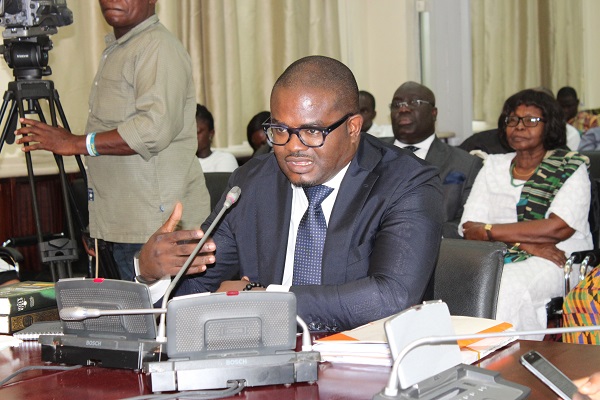
COVID-19 hikes debt service cost; Govt restrategises for rebound
The Ministry of Finance has explained that the increasing cost of servicing the national debt in recent times is due to the shock brought about by the Coronavirus disease (COVID-19), which has caused revenues to fall substantially.
It said although the pandemic had dragged revenue down, debt service cost, which refers to the payment of due portions of loans (amortisation) and the interest, remained high, resulting in a higher ratio when debt service cost was compared with total revenue.
Advertisement
The ministry’s response followed analysis that showed that the ratio of debt service cost to total revenue and grants had risen to 89.1 per cent in June this year.
The country’s debt stock currently stands at GH¢258.4 billion. The Ministry of Finance plans to reduce that to 71.6 per cent.
Corrective measures
In a response to Daily Graphic enquiries on the debt situation and its impact on the economy, a Deputy Minister of Finance, Mr Charles Adu Boahen, outlined a series of measures that the ministry was pursuing to help bring the cost down.
He said the ministry "recognises the relative increases in debt service burden in 2020, as against the original forecast in the 2020 Budget".
Low-cost debts
Having identified the challenge, he said, the ministry had rolled out a number of solutions to help reverse the trend and reduce its impact on the economy.
They included the use of low-cost debts to retire comparatively costly ones, the development of a robust domestic debt market to create space for low-cost debts and an increased resort to bilateral and multilateral sources for loans, he said.
Debt management
The deputy minister said the government’s debt management strategy included borrowing at least cost and at a prudent level of risk.
That was consistent with the liability management strategy, where new debts were secured at cheaper costs to replace cheaper ones, he said.
Consequently, Mr Adu Boahen said, an updated strategy document would be published soon to reflect the mid-year budget.
The government was also in the process of reviewing the Primary Dealer guidelines and system to ensure the development of the domestic market, he explained, and added: “This will ensure that we will be able to mobilise domestic funding at a lower cost.”
He said the government was also engaging more external funding from bilateral and multilateral institutions, noting that those were cheaper sources but they had been dwindling over the past years because the country attained a lower-middle-income status.
Debt sustainability
Commenting on the current debt-to-gross domestic product (GDP) ratio of 67 per cent, the deputy minister said the development was a "reflection of COVID-19’s temporary reduction in revenue, one-off increased expenditures to save lives and livelihoods and a temporary reduction in GDP".
"When you calibrate all these, the result of the 2020 COVID-19 Debt Sustainability Analysis (DSA) shows that Ghana’s debt distress remains the same as the results from the 2019 DSA.
"The results indicate that the debt under the COVID-19 pandemic is sustainable but high," Mr Adu Boahen said.
He said the prospects for debt sustainability were also bolstered by the structuring of the GH¢100 billion Ghana Coronavirus Alleviation & Revitalisation of Enterprises Support (CARES) programme.
The Deputy Finance Minister said the ministry expected the programme to stabilise the economy this year and revitalise it over the medium term.




